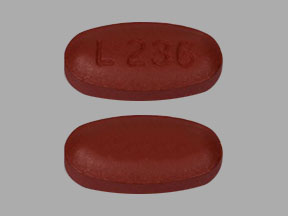
Diovan Hct Coupons & Savings Card – Discount Prices from $12.39
Brand for: Valsartan-hydrochlorothiazide
My prescription
Edit
160-12.5MG, Valsartan-hydrochlorothiazide (30 Tablets)
Select pharmacy

CVS
$20.05
COUPON PRICE
Walgreens
$12.39
COUPON PRICE
Albertsons
$14.98
COUPON PRICE
Walmart
$20.67
COUPON PRICEDiovan Hct savings card
Show this card to your pharmacist
Walgreens
$12.39
BIN
ID
PCN
GRP
019876
LH18E110BD
CHIPPO
LHX
Powered by
More prescriptions for hypertension
More prescriptions for hypertension
Price history for Diovan Hct (brand) & Valsartan-hydrochlorothiazide (generic)
30 Tablets, 160-12.5MG
Average retail price for Diovan Hct
Average retail price for Valsartan-hydrochlorothiazide
Average SaveHealth price for Valsartan-hydrochlorothiazide
Our price history data is based on aggregated prescription data collected from participating pharmacies in America. Our prescription data updates daily to reflect the latest price changes. If you notice a missing data point, it means there wasn't sufficient data available to generate a monetary value for that date.
Over the last 12 months, the average discount price of Diovan Hct is $20.70 using the SaveHealth savings card. That's an average savings of 96.11% on Diovan Hct with our discount card.
*Retail prices are based on pharmacy claims data, and may not be accurate when we don't have enough claims.
Diovan Hct (Valsartan-hydrochlorothiazide) dosage forms
Dosage Quantity Price from Per unit 80-12.5MG 30 Tablets $8.35 $0.28 80-12.5MG 45 Tablets $11.27 $0.25 80-12.5MG 60 Tablets $14.20 $0.24 80-12.5MG 90 Tablets $26.54 $0.29 80-12.5MG 180 Tablets $36.36 $0.20 160-12.5MG 30 Tablets $12.39 $0.41 160-25MG 30 Tablets $13.38 $0.45 160-25MG 45 Tablets $15.57 $0.35 160-25MG 60 Tablets $17.76 $0.30 160-25MG 90 Tablets $28.85 $0.32
| Dosage | Quantity | Price from | Per unit |
|---|---|---|---|
| 80-12.5MG | 30 Tablets | $8.35 | $0.28 |
| 80-12.5MG | 45 Tablets | $11.27 | $0.25 |
| 80-12.5MG | 60 Tablets | $14.20 | $0.24 |
| 80-12.5MG | 90 Tablets | $26.54 | $0.29 |
| 80-12.5MG | 180 Tablets | $36.36 | $0.20 |
| 160-12.5MG | 30 Tablets | $12.39 | $0.41 |
| 160-25MG | 30 Tablets | $13.38 | $0.45 |
| 160-25MG | 45 Tablets | $15.57 | $0.35 |
| 160-25MG | 60 Tablets | $17.76 | $0.30 |
| 160-25MG | 90 Tablets | $28.85 | $0.32 |
| 160-25MG | 180 Tablets | $39.80 | $0.22 |
| 160-12.5MG | 45 Tablets | $14.09 | $0.31 |
| 160-12.5MG | 60 Tablets | $15.78 | $0.26 |
| 160-12.5MG | 90 Tablets | $27.17 | $0.30 |
| 160-12.5MG | 180 Tablets | $36.81 | $0.20 |
| 320-25MG | 15 Tablets | $6.87 | $0.46 |
| 320-25MG | 30 Tablets | $11.24 | $0.38 |
| 320-25MG | 45 Tablets | $15.60 | $0.35 |
| 320-25MG | 60 Tablets | $19.02 | $0.32 |
| 320-25MG | 90 Tablets | $33.03 | $0.37 |
| 320-12.5MG | 7 Tablets | $4.51 | $0.64 |
| 320-12.5MG | 14 Tablets | $6.51 | $0.47 |
| 320-12.5MG | 30 Tablets | $11.10 | $0.37 |
| 320-12.5MG | 60 Tablets | $19.56 | $0.33 |
| 320-12.5MG | 90 Tablets | $33.84 | $0.38 |
What is Diovan HCT used for?
Diovan HCT is used to treat high blood pressure (hypertension). It combines two medications, valsartan and hydrochlorothiazide, to help lower blood pressure and reduce the risk of complications such as stroke and heart attack.
What is the difference between Diovan and Diovan HCT?
Diovan contains the active ingredient valsartan, which is an angiotensin II receptor blocker (ARB) used to treat high blood pressure and heart failure. Diovan HCT, on the other hand, is a combination medication that includes both valsartan and hydrochlorothiazide, a diuretic (water pill) that helps reduce fluid retention and further lowers blood pressure. The addition of hydrochlorothiazide in Diovan HCT provides an additional mechanism to control blood pressure compared to Diovan alone.
What foods should I avoid with valsartan and hydrochlorothiazide?
When taking valsartan and hydrochlorothiazide, it is advisable to avoid foods high in potassium, such as bananas, oranges, and leafy greens, as these medications can increase potassium levels in the blood. Additionally, it is recommended to limit salt intake and avoid excessive consumption of alcohol, as these can affect blood pressure control. Always consult with a healthcare provider for personalized dietary advice.
